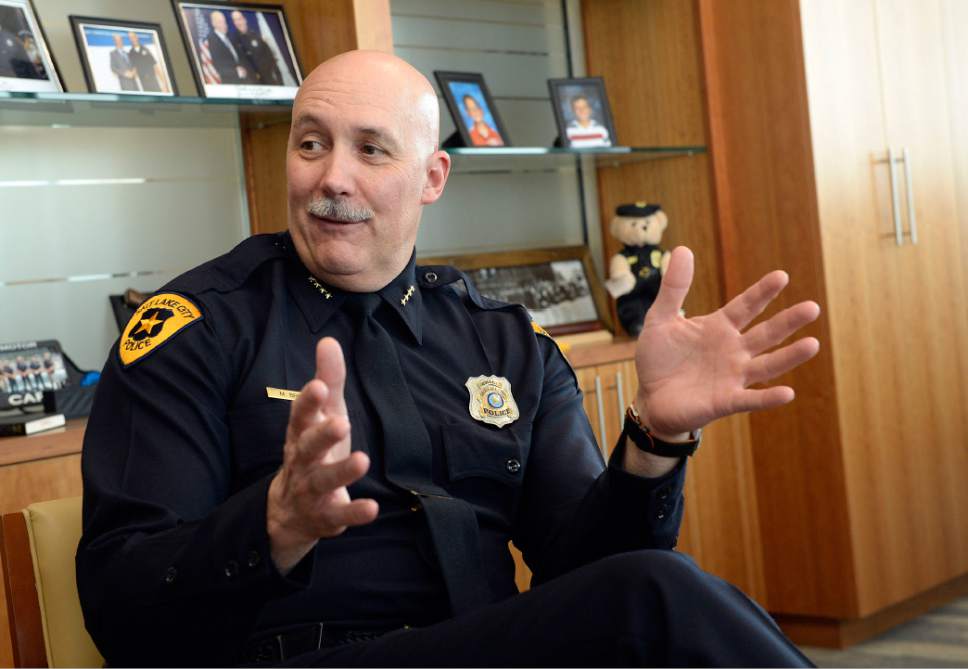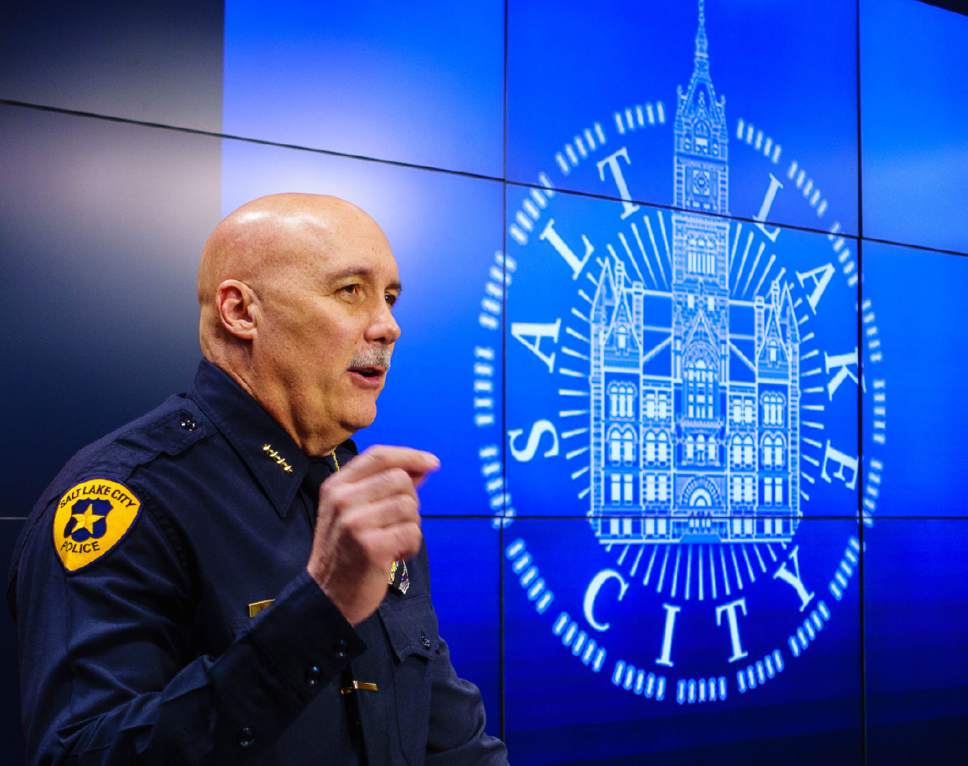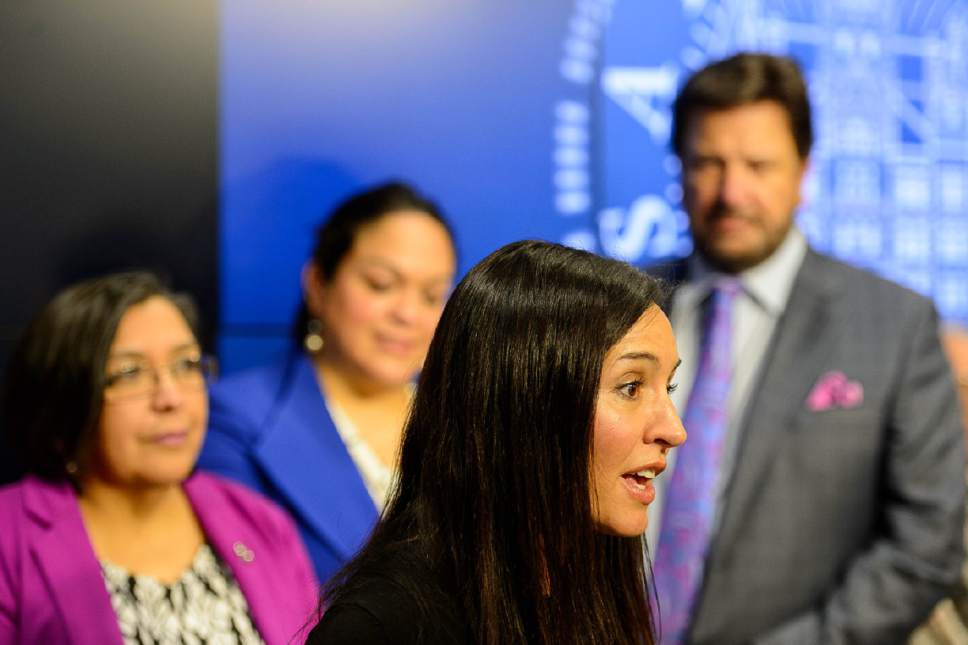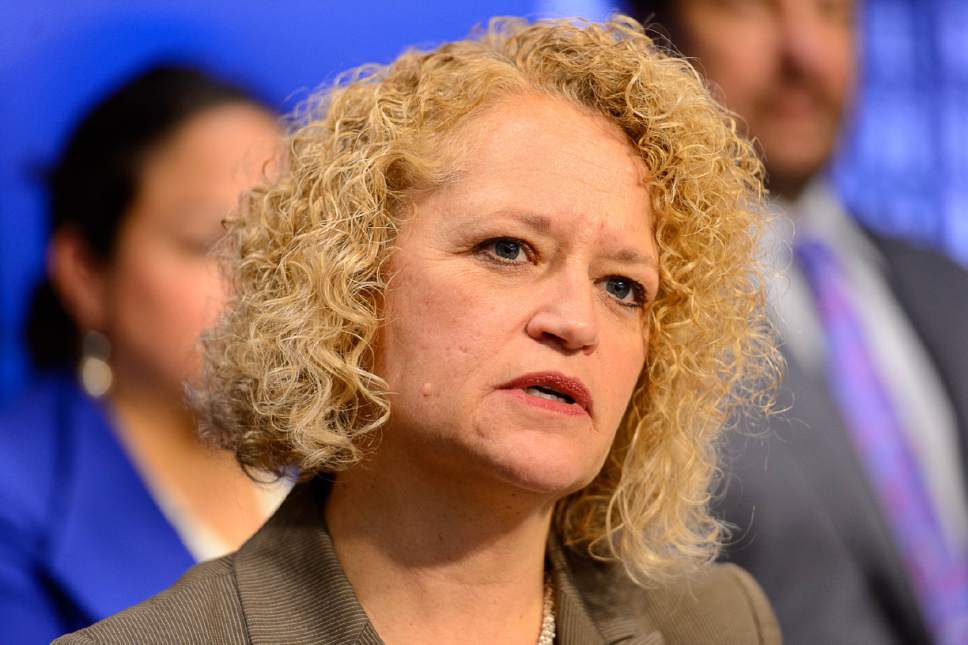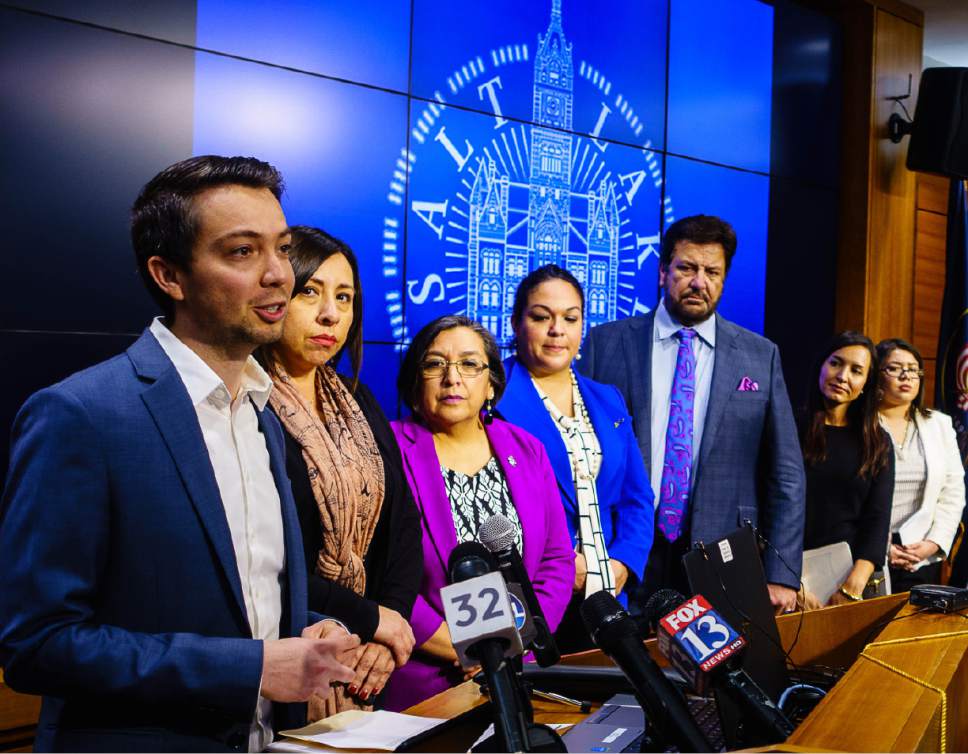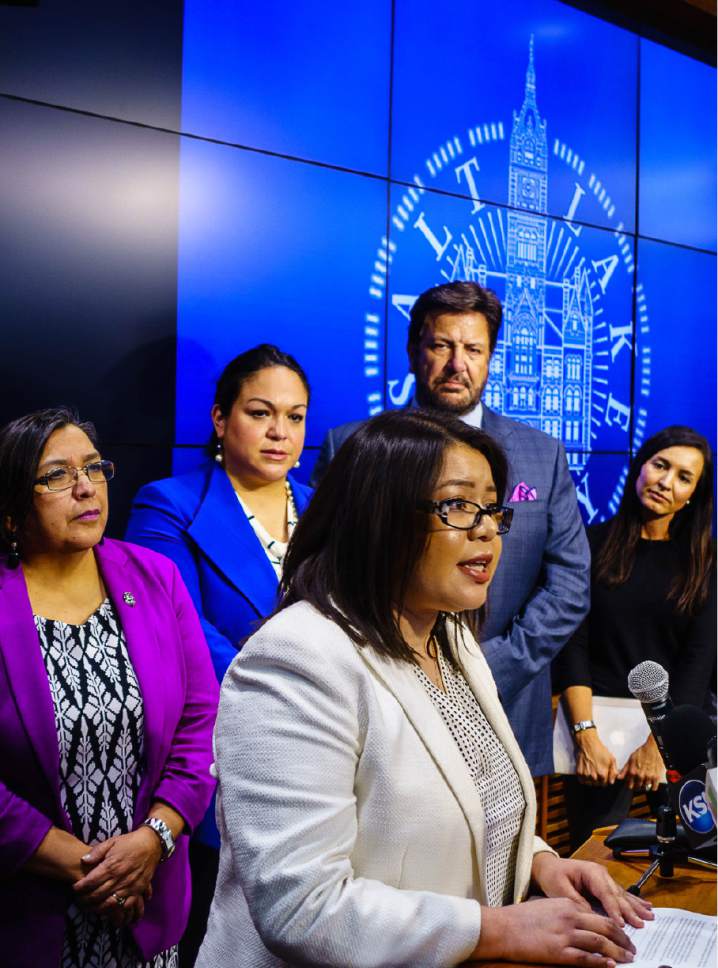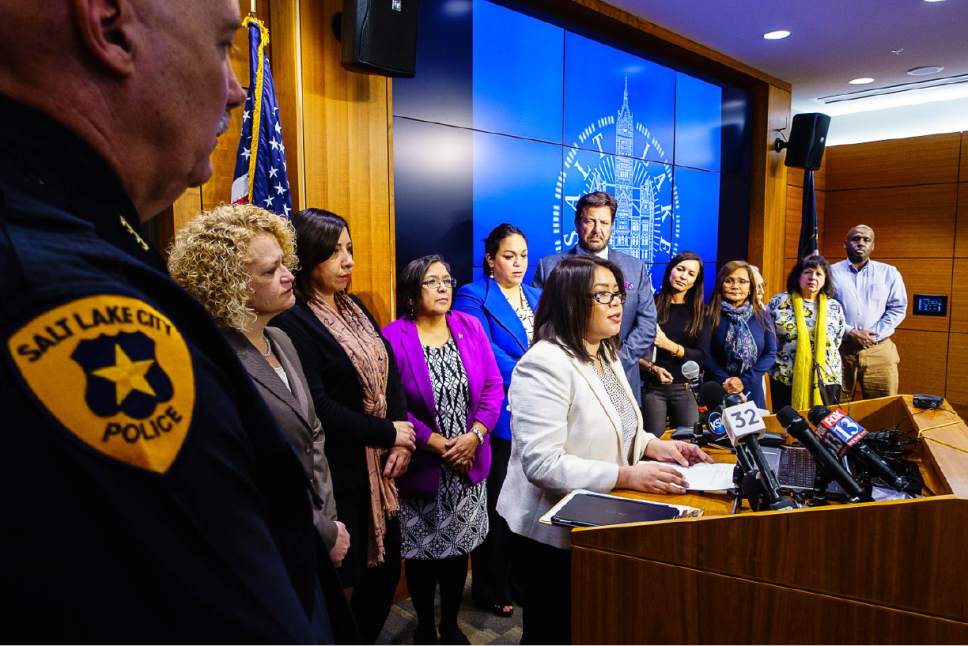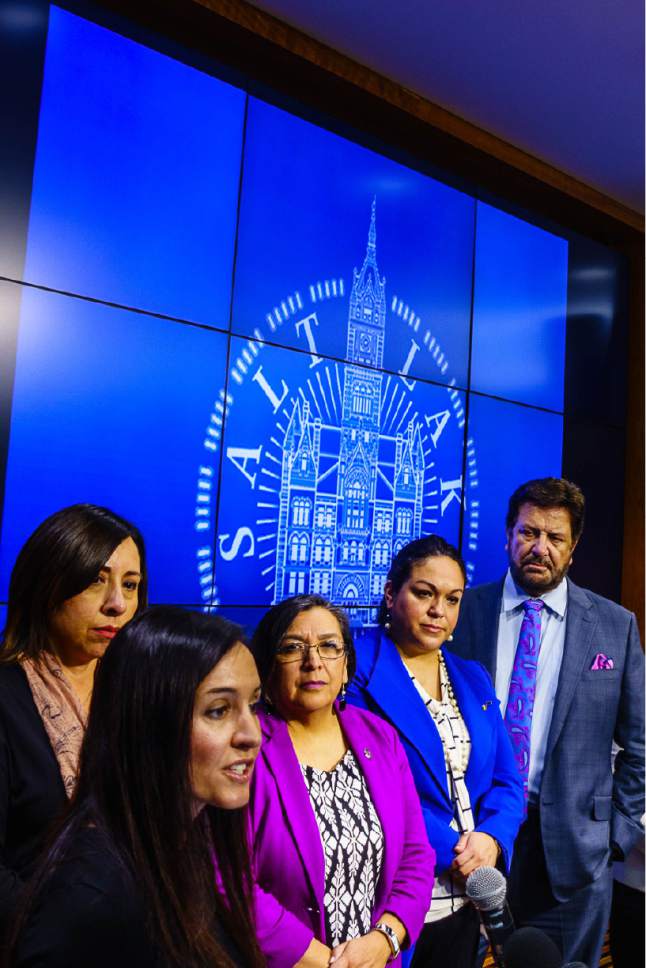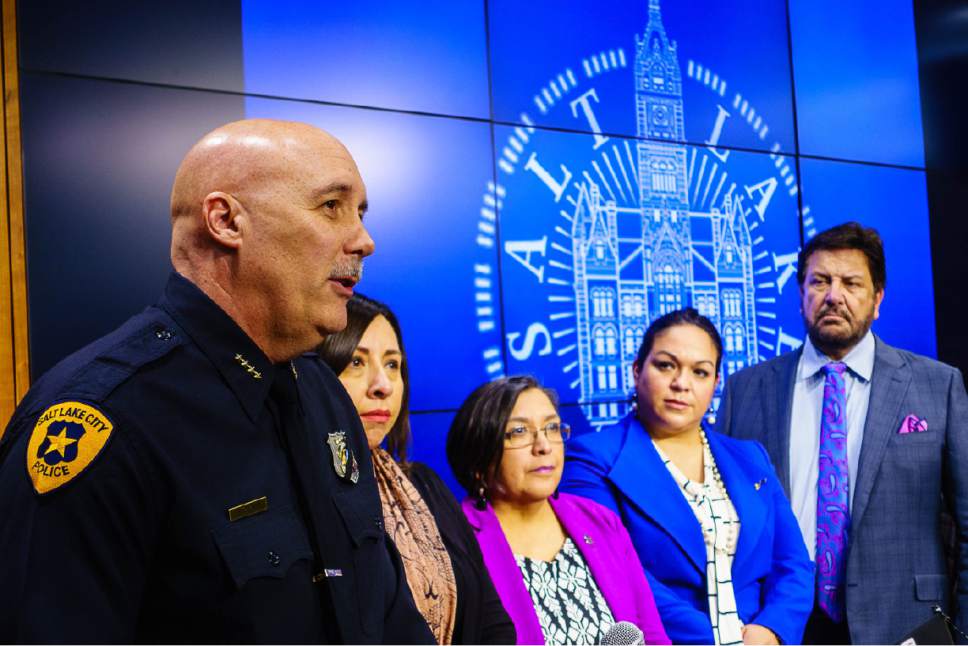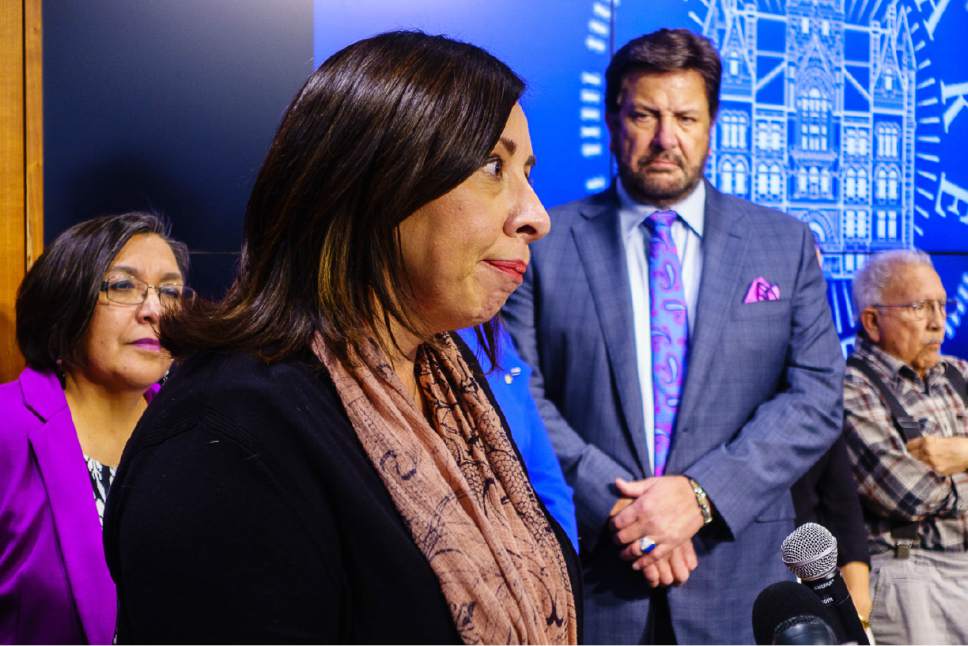This is an archived article that was published on sltrib.com in 2017, and information in the article may be outdated. It is provided only for personal research purposes and may not be reprinted.
President Donald Trump wants city police officers to enforce federal immigration laws, and Salt Lake City refuses.
Flanked by city Police Chief Mike Brown, several Democratic state lawmakers and members of various community organizations, Mayor Jackie Biskupski said Thursday that her city is a "welcoming community."
"Our police department is not enforcing federal immigration policy," Biskupski said. "The Salt Lake City Police Department has a longstanding practice against officers inquiring about the immigration status of those they come in contact with on a day-to-day basis."
The Enriching Utah Coalition organized the event to protest President Donald Trump's immigration agenda — building a wall between the United States and Mexico, beefing up deportation efforts, curbing federal funding for cities that act as safe havens for undocumented immigrants, and suspending legal immigration and travel from countries that are terrorism hot spots, all of them Muslim-majority nations.
Brown said his department hasn't previously enforced immigration law, nor does it plan to do so in the future.
"The residents in Salt Lake City need to have trust in their police officers," he said. "If police officers were forced to detect and detain immigrants who are here without authorization, this trust is easily broken."
People with criminal warrants will be investigated normally, Brown said, but individuals won't be arrested or profiled based on their ethnicity or immigration status.
Rep. Mark Wheatley, D-Murray, stated that Trump's proposed policy would be "stepping backward."
"This is not the Utah way," Wheatley said. "We have to ensure that our families are safe. Yes, we want to ensure that we take care of the criminal element, but let's not do it the executive way where there's no due process."
On Wednesday, Salt Lake County Mayor Ben McAdams said the county cooperates with federal immigration authorities and would continue to do so — particularly as their efforts relate to drug dealing and "those people who are preying on our communities and making them unsafe."
But McAdams added that federal immigration law is "broken."
"We don't support law breakers. We don't support illegal immigration. But we're going to use our limited resources to protect the public safety, not to arrest landscapers and others that are in our community."
McAdams and Salt Lake City Councilman Charlie Luke said Trump's pledge to cut funding for noncompliance amounts to a violation of the 10th Amendment.
"We'll see if that's going to slow him down," Luke said. "It doesn't seem to right now."
Provo Police Chief John King said by phone that it would be a "very bad policy" to have local police enforce immigration laws.
Immigration-centric local policing would open up refugees to victimization and make them afraid to report crimes to police.
"We can't forget that the reason that people are coming into America is for themselves and their families," said King, whose mother emigrated from Ireland. Most immigrants, he said, make valuable contributions to the country.
"We're still going to arrest bad guys," King added, but "we're going to focus on behavior" rather than immigration status or skin color.
"This just adds to the tension; it doesn't add to the solution," King said.
Frank Budd, executive director of the Utah Chiefs of Police Association, said he deferred to the judgment of local officials on how federal policies are enforced at a city level.
At the federal level, Rep. Jason Chaffetz, a Utah Republican who has visited America's southern border, lauded Trump's efforts to build a wall and deport immigrants who have criminal records.
"There is no doubt our immigration system is broken," said Chaffetz, chairman of the House Oversight and Government Reform Committee. "Locking down the border, deporting dangerous criminals and penalizing countries who refuse to repatriate convicted felons sends a message that the United States respects and enforces the rule of law."
Facing a question from the crowd on how the Legislature will handle immigration enforcement outside of the capital, Sen. Luz Escamilla, D-Salt Lake City, said the state "is in a good place."
Republican Gov. Gary Herbert has long embraced refugees coming into Utah and said in November that he hoped Trump's comments on immigration were "a little bit of hyperbole."
Biskupski said she expects mayors around the country to rebuke the new administration's immigration policies and that cities will "rise to the occasion on many issues" during Trump's tenure.
"Our national leaders should be helping us build bridges, not walls," the mayor said. "They should help us improve our local communities, not ask us to divide them."
Twitter: @BrennanJSmith
— Reporters Thomas Burr and Matthew Piper contributed to this story.


